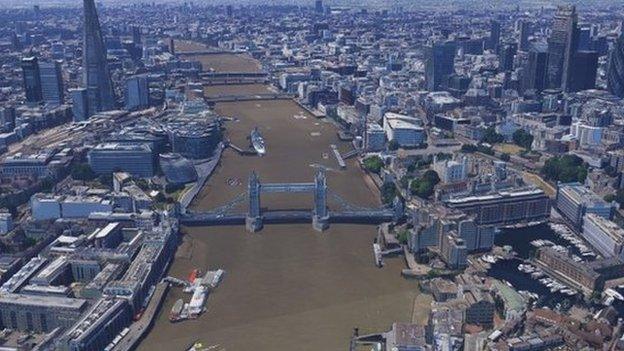London Tube strike: Facts to know
- Published
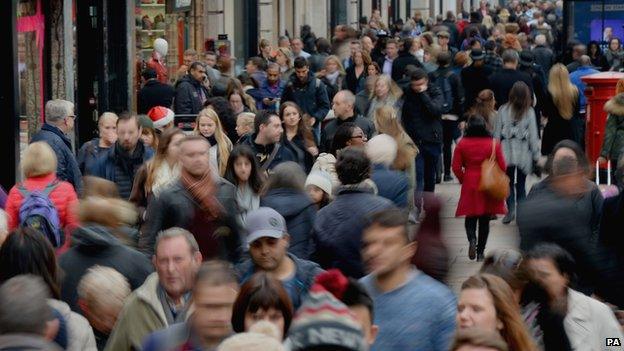
London's in for a busy day...
It is that time again - when bickering between Tube bosses and union kingpins bring the London Underground to a juddering halt, and the streets of the city resemble a termite mound that has been poked with a big stick. If nothing else, it makes you realise just how many people are underground at any one time. Here are 10 things you may not know about the Tube strike.

1. It costs a lot
The strike on 9 July is said to have cost London's economy £300m*, enough to employ a single Tube driver for the next 6,000 years. At an average Tube train speed of 20mph (33km/h), and with our long-living driver working a 36-hour week, he would travel 370,656,000km (230,314,961 miles) over that impressive career - equivalent to the moon and back almost 1,000 times. *Federation of Small Businesses, external.
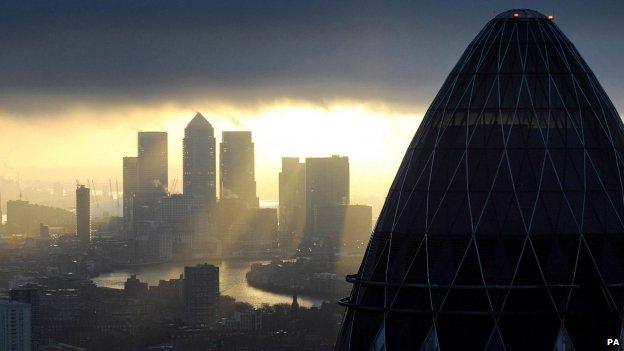
London is a major driver of the UK economy
Coincidentally, the cost to London's economy is almost the same as the £360m boost TfL claims the city will see once night Tubes are running, creating some 2,000 new jobs.

2. New strike legislation would not have stopped it
New rules being introduced by the Conservatives to make striking harder by insisting 50% of those eligible in a strike ballot cast a vote would not have prevented this action. Aslef, for example, saw a 97% vote in favour of a strike on an 81% turnout. Unions say they have safety concerns over the current plans - something TfL disputes.
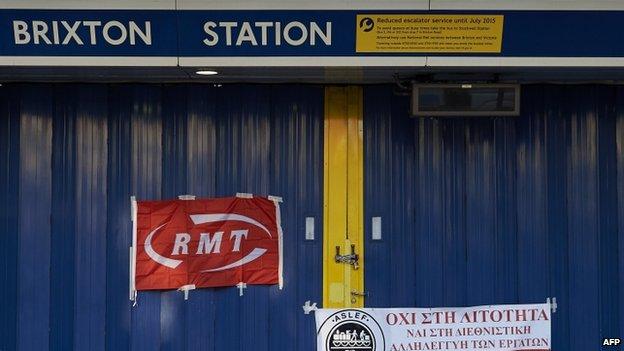
Stations across London were shut down last time

3. New York's subway has run all night since it opened... in 1904
The City That Never Sleeps, indeed. Meanwhile, Aslef is arguing the planned, partial all-night service in London (weekends only) may not even be possible from the planned launch date of 12 September. However, defenders of the union's position might argue night trains were easier to organise in New York - it was designed with a 24-hour service in mind, as opposed to London's creaking Victorian network.
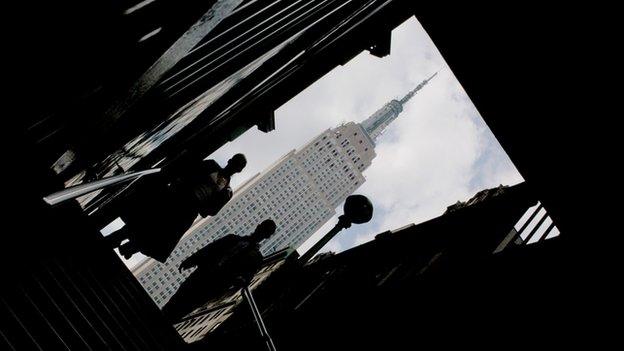

4. You can burn some serious calories by commuting on foot
According to this, external Tube map, developed by a health website. This author, for instance, would burn a princely 215 calories on his pleasant morning stroll from Elephant and Castle to Oxford Circus, the nearest Tube station to New Broadcasting House. Why, that's equivalent to a bagel with honey!
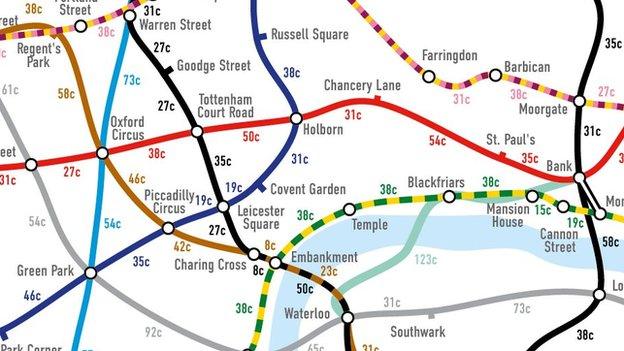
Walking - plenty of it will be going on

5. If you don't make it to work, you shouldn't get the sack
A single missed day is not the basis for termination of your employment, the Independent, external reassures us. But if this behaviour fits into a pattern of absenteeism, you may not be safe. The best advice is to agree things in advance.
"Ultimately the advice would be to try to get into work, unless it is totally hopeless, then the employee should communicate with the employer," a lawyer told the paper.
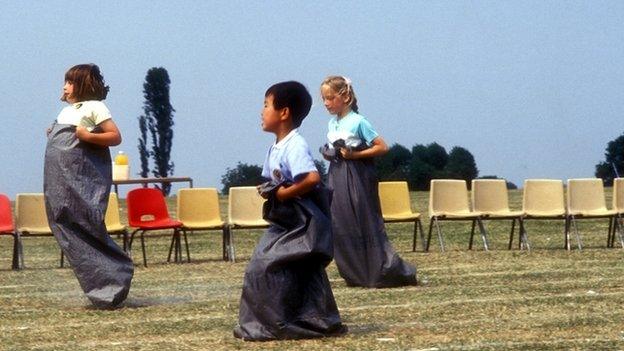
The sack: not on the cards for well-behaved employees

6. Tube drivers are happy and wealthy, statistics suggest
According to HM Treasury figures, the drivers' starting salary of £49,673 means they earn more than 90% of the population. And according to a survey reported by Reuters, workers earning £50,000 are among the happiest, external in Britain. Ed Bowsher, head of the financial company that did the research, said: "Perhaps it's partly driven by your kind of personality. The kind of people who have the ambition to get a job that is earning £70,000 or more may be the kind people who are never going to be satisfied."
This strike is not solely about pay, but when it comes to further rises, Tube drivers should be careful what they wish for. And working nights might further dent their sense of contentment, as nurses, airport workers and highly-caffeinated journalists can attest.
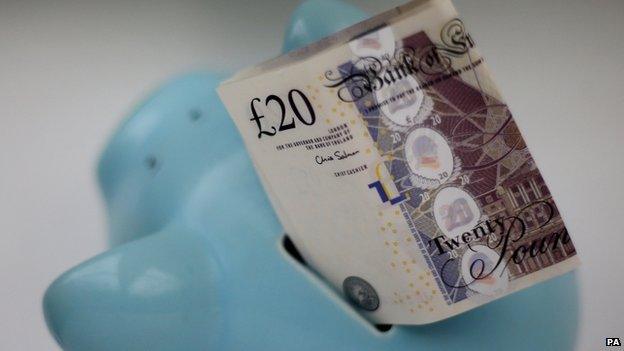
Tube drivers earn more than 90% of the population, according to HM Treasury figures

7. The beef doesn't end on the Underground network
During the last strike, the app-based minicab-booking business Uber was accused of ripping off passengers by tripling its fares. Under its "surge pricing" policy, the bills rise when more people need a ride. During the last strike, the writer Tony Parsons tweeted: "That's not capitalism, it's robbery."
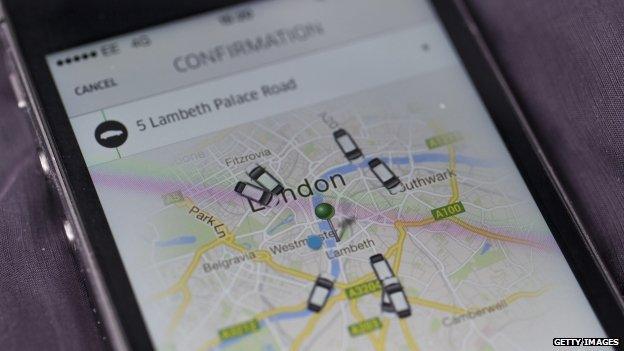
Uber: a source of constant controversy
Uber has defended its pricing as "dynamic" and fully transparent.

8. Traffic jams ahoy...
During the last Tube strike the BBC reported there were 827 miles (1,332km) of traffic jams in the city, which is not known for its free-flowing travel at the best of times. Twice as many of the so-called "Boris Bikes" were wobbling their way past the lines of stationary traffic. Working from home, anyone?
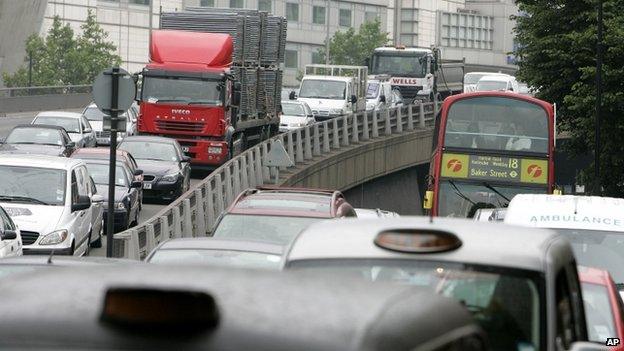
This is what your future holds

9. You will not be able to get a refund for the lost day's travel
Because TfL says strike action is beyond its control, there will be no refunds for journeys delayed or cancelled. But printed single Tube tickets will be accepted on bus and tram services on "reasonable" alternative routes, though not on National Rail services. TfL has provided a list of social media resources, external to try and help commuters get around the city.
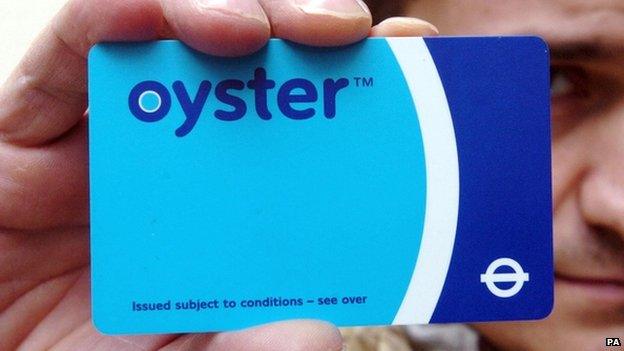
TfL argues strikes are beyond its control

10. It brings out one of the best characteristics of the British...
Which would be our enviable capacity for forming orderly queues. During the last strike Twitter was humming with accounts of world-beating lines of people trying to catch a bus. Zubair Munsif tweeted: "Just look at that queue! Makes me proud!"
Another commuter reported that it had taken him two minutes to walk the length of the queue at Victoria.
And Charles Sherred tweeted: "Despite the London Underground strike, I admire the London workers for demonstrating immaculate bus queues this morning."
That said, there is perhaps something rather un-British about the widespread blowing of our own trumpets over this behaviour.
.jpg)
Queues for London buses during an Tube strike in 1939

- Published5 August 2015
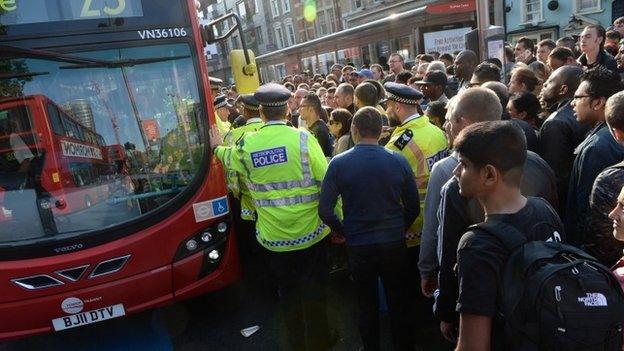
- Published3 August 2015
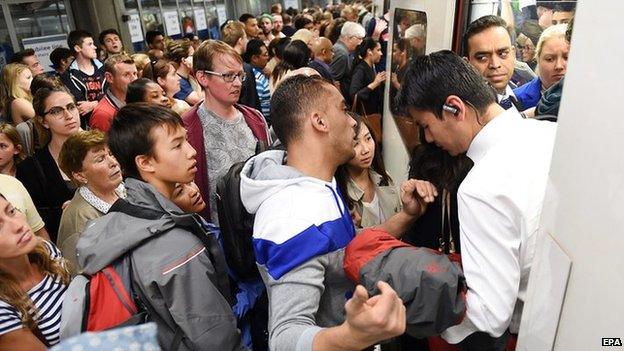
- Published9 July 2015
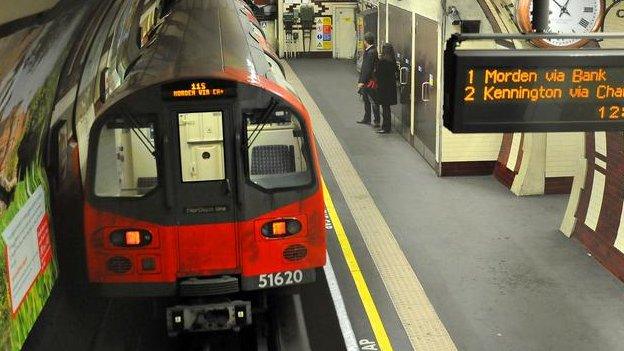
- Published2 February 2015
